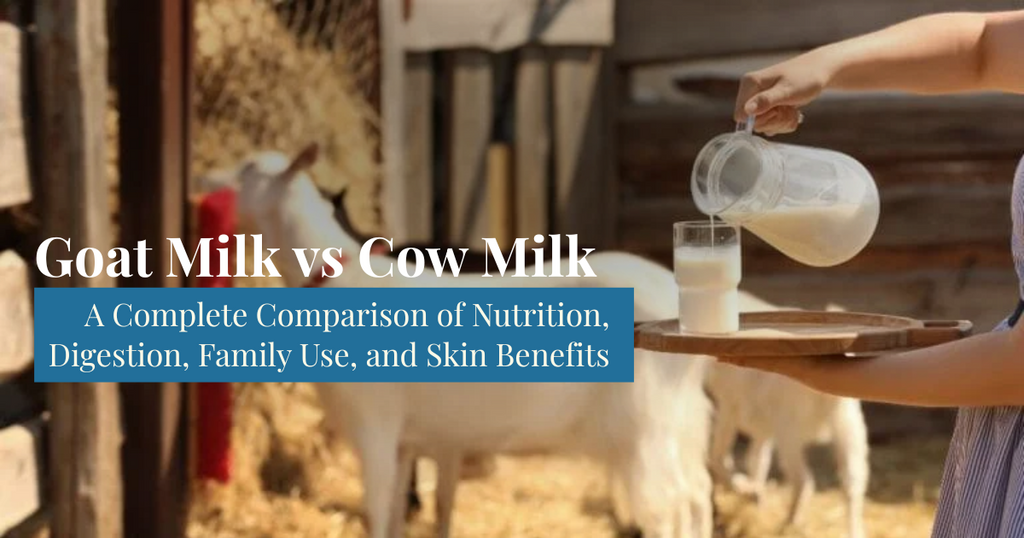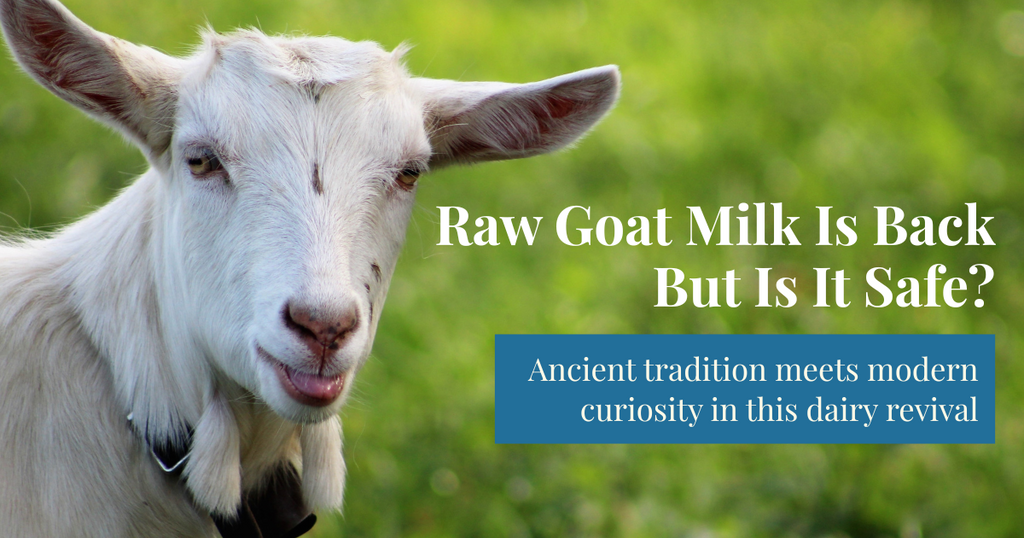While colostrum is mostly considered safe, it is best to consult your healthcare provider in advance before taking colostrum supplements.
Bovine Colostrum: Is It Safe for Daily Use?
🕑8 min read | Published: October 25, 2024 | By: Aadvik Foods
Sourced from cows that have just given birth, is bovine colostrum truly worth all the hype online?
As more people shift to healthier lifestyles, bovine colostrum has emerged as a natural supplement for immunity boost and better gut health. Even with limited research, it has shown positive results and great potential for promoting better health in humans. Despite its promising foundation, some people are still concerned about its regular intake and risks.
To overcome such doubts, here is a deep dive into all the possible benefits, limitations, and usage of bovine colostrum that you may want to know before using it.
Understanding Bovine Colostrum and Its Key Nutrients
Bovine colostrum is the first milk cows secrete from their mammary glands after giving birth. It is different from their regular milk and only lasts for 24-48 hours before transitioning into mature milk.
Calves are born without a fully functioning immune system, and exposure to pathogens of the outside world can pose serious health risks to them. If a calf doesn’t receive colostrum within the first 24 hours, its risk of death over the next three weeks increases by 50 times.
As a result, they are dependent on their mother’s colostrum– a nutrient-rich pre-milk packed with bioactive proteins, peptides, fats, carbohydrates, vitamins, and minerals essential for their survival. Feeding on it provides all the vital antibodies and growth factors to build their immunological defenses and support early growth.
Here is a brief breakdown of nutrients in cow colostrum:
- It contains proteins such as immunoglobulins, lactoferrin, and casein. Their antibacterial and anti-inflammatory properties regulate the immune system and digestion.
- Its essential carbohydrates, such as oligosaccharides, glycolipids, and glycoproteins, are prebiotics that improve digestion and support better gut health.
- The vitamins in cow colostrum include vitamins A, B1, B2, B3, B12, D, and E. They are vital for metabolic activities such as bone growth and mental health development.
- Bovine colostrum contains copper, zinc, iron, phosphorus, magnesium, manganese, calcium, and other essential minerals.
- Although it also contains a high proportion of saturated fats and lipids, the healthy fats in colostrum can support cardiovascular health.
Bovine Colostrum Benefits
Before moving forward, it is essential to establish that bovine colostrum benefits for human beings are still not fully researched. The benefits we are about to discuss are all potential gains of consuming it in supplement form.

Gut Health Support
Based on its role in promoting healthy GI microbiomes in calves, bovine colostrum can also play a key role as a gut health supplement for humans. It also has the potential to promote healthy bowel movements and prevent frequent diarrhea.
Muscle Recovery and Growth
Due to their intense training routines, professional athletes are more susceptible to injuries in their ligaments, tendons, muscles, bones, and tissues. As a result, they often rely on dietary supplements to support their muscle recovery and bone health.
The growth factor 1 (IGF-1) in bovine colostrum may help them and other aging adults improve their muscle regeneration post-injury. It also promotes collagen production, which in turn supports muscle healing. Some studies indicate that taking bovine colostrum supplements can also prevent performance decrement caused by intensive training.
Allergy Relief
The results of a study conducted on children between the ages of 7 and 18 suggested the effectiveness of bovine colostrum in allergy relief. It showed positive results in reducing the symptoms of nasal allergies and was effective in improving lung functions in patients with respiratory allergies.
Disease Prevention
Bovine colostrum contains lactoferrin, which is known for its antibacterial and antiviral properties. It strengthens the immune system, boosts iron absorption, promotes healthy inflammatory responses, and controls the growth of non-communicable diseases.
Additionally, studies conducted by the United States Food and Drug Administration have confirmed that lactoferrin in bovine colostrum also has anticancer benefits, but its full potential needs more in-depth research.
Possible Side Effects of Bovine Colostrum
A major drawback of colostrum supplements is that they are still in the early stage of research. While we have seen good results in many cases, there are still some doubts about its side effects. Consuming them without adequate medical supervision may risk the health of people with certain medical conditions and allergies. Here are a few conditions to be cautious of if you are considering bovine colostrum supplements.

Final Thought
Frequently Asked Questions
Is it safe to take colostrum every day?
Who should not take bovine colostrum?
Anyone with lactose intolerance, dairy allergies, or heart disease should avoid it. It is also not advisable for pregnant or breastfeeding women.
What is the best way to take bovine colostrum?
It is best to follow the advice printed on the label or consult a physician for the best use of bovine colostrum.
What is the difference between colostrum and bovine colostrum?
The milky fluid produced by any female mammal after giving birth is colostrum, while bovine colostrum is specifically produced by cows.












